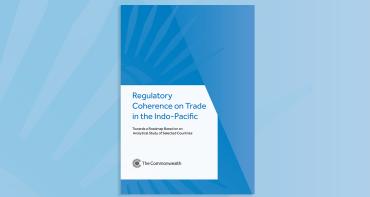Botswana has launched a new scheme to boost its economy. The new ‘Aid for Trade’ strategy outlines ways to diversify exports and drive the nation’s economic growth.

Botswana has launched a new scheme to boost its economy. The new ‘Aid for Trade’ strategy outlines ways to diversify exports and drive the nation’s economic growth.
The Commonwealth Secretariat provided the technical assistance to prepare the strategy for the government of Botswana, which provides helpful guidance on establishing new trading opportunities. The plan also identifies potential markets and growth areas which can be developed through financial and technical assistance. Botswana aims to deliver the project over the next six years.
“International trade is an indispensable requirement for Botswana as a country with a small population,” said the Hon. Vincent Seretse, Minister of Investment Trade and Industry. “For Botswana’s industries to achieve economies of scale and remain sustainable, integration into the regional and multilateral trading system is important. International trade is an engine for inclusive economic growth and poverty reduction and it contributes to the promotion of sustainable development.”
Export-led economic growth and employment creation are priority areas identified as being pivotal for the national development of Botswana. Studies have shown that trade strongly encourages economic growth and reduces both poverty and income inequality. The new Aid for Trade strategy proposes ways to reduce inequalities by improving market access, in line with the Sustainable Development Goals (SDGs). Agencies in Botswana will now implement the various schemes.
“Aid for trade has become an important vehicle for assisting developing countries in improving their trade capacity and benefitting from the expansion of global markets. But some developing countries, particularly the least developed, can lack the efficient infrastructure needed to link local producers to domestic, regional and global markets and the regulations to engender a vibrant private sector,” Paulo Kautoke, director of trade at the Commonwealth Secretariat said. “By providing technical expertise throughout the planning, implementation and evaluation of a trade strategy, the Commonwealth can enable a country to unlock its potential and best harness its resources.”
Low levels of human capacity, particularly in the non-traditional sectors, were identified as a constraint to export growth. In addition, the country continues to struggle with high levels of unemployment. A micro-financing program is planned to up-skill the potential workforce. This will include activities such as training for small and medium sized enterprises with a focus on improving business opportunities for women.
A national program to improve quality and standards of key export products such as leather and beef has been outlined. Training will be given to government departments which work across trade competitiveness related regulations to develop skills in negotiating trade at policy level. Other proposed activities include the improvement of transportation networks and electricity generation.



